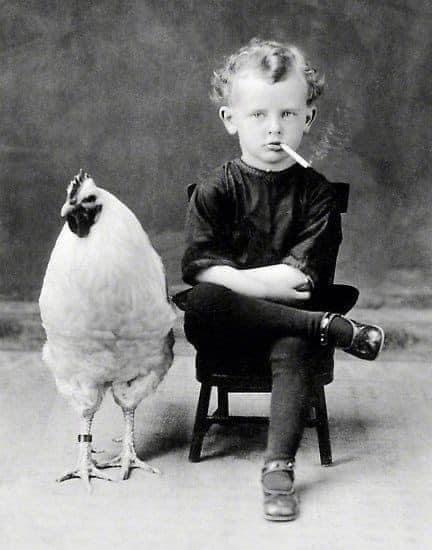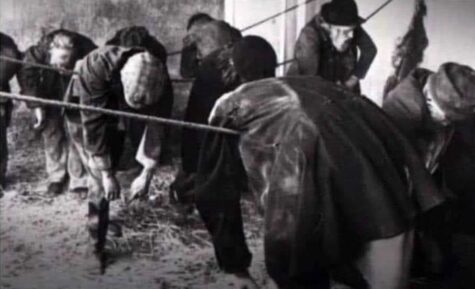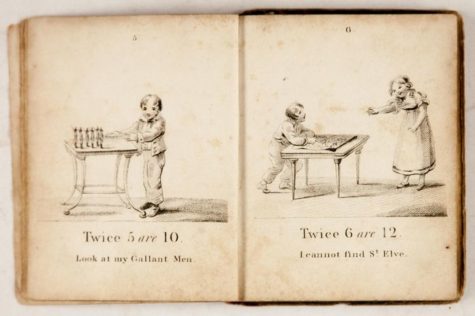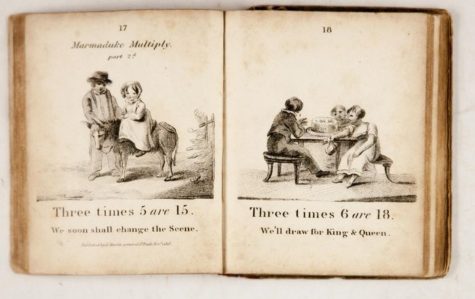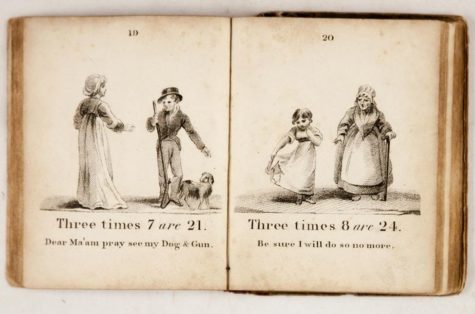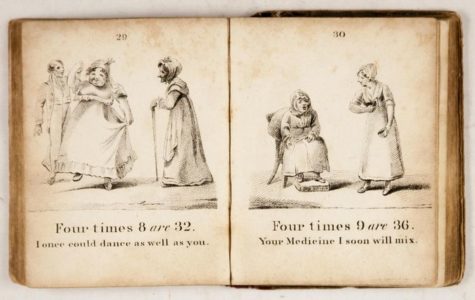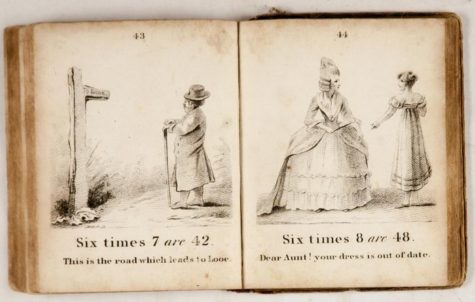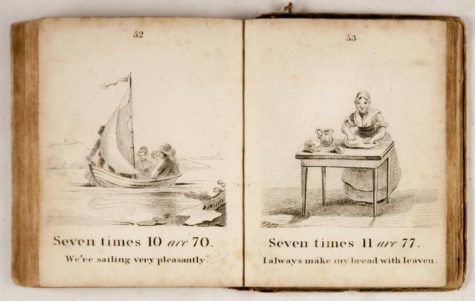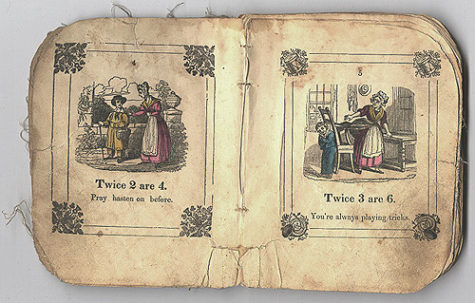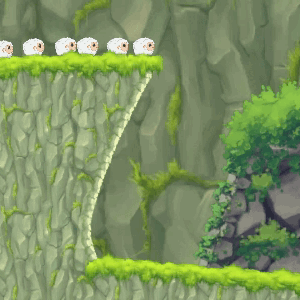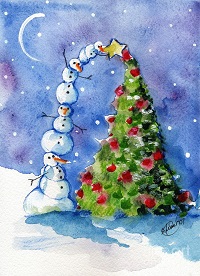Victorian
- Absolutely true – Surprisingly, for a time, this meant absolutely false. The name Absolutely True was the title of a book, the statements in which, were difficult to accept or blatantly untrue.
- Afternoonified – A society word meaning “smart.” “The goods are not ‘afternoonified’ enough for me.”
- Agreeable rattle – A talkative young man.
- Air-hole – A small (often dismal) Public Park adapted from an old graveyard, with the gravestones removed and replaced to stand, sentry style around the circumference.
- Alexandra limp – An affected manner of walking seen in many women for several years and attributed to the then Princess of Wales who had had some trouble with a knee.
- Arfarfan’arf – A figure of speech used to describe drunken men. “He’s very arf’arf’an’arf,” meaning he has had many “arfs,” or half-pints of booze.
- Argol-bargol – To have a row or a fight.
- Amen corner – A church
- Appy dosser – A satirical description of a homeless creature, so wretched as to not have the few halfpence necessary to pay for a ‘dos’ or bed in a common lodging house.
- Back slang it – Thieves used this term to indicate that they wanted “to go out the back way.”
- Bags o’ mystery – An 1850 term for sausages, “because no man but the maker knows what is in them. … The ‘bag’ refers to the gut which contained the chopped meat.”
- Balloon-juice – Soda water, presumably suggested by its gasey nature.
- Bang up to the elephant – This phrase originated in London in 1882, and means “perfect, complete, unapproachable.”
- Batty-fang = Low London phrase meaning “to thrash thoroughly.”
- Benjo – Nineteenth century sailor slang for “A riotous holiday, a noisy day in the streets.”
- Bit o’ raspberry – An attractive girl, originally a raspberry jam as this was considered the most flavorsome of preserves, so the prettiest of the girls were a bit o’ raspberry.
- Bitch the pot – Among a tea drinking party of men, it refers to who will pour the tea. “It’s your turn to bitch the pot.”
- Bloody carpet rags – A mutilated man. For example, “he’d make bloody carpet rags of him.”
- Bow wow mutton – A naval term referring to meat so bad “it might be dog flesh.”
- Bricky – Brave or fearless. “Adroit after the manner of a brick,” said even of the other sex, ‘What a bricky girl she is.’”
- Bubble around – A verbal attack, generally made via the press. For example, The Golden Butterfly: “I will back a first-class British subject for bubbling around against all humanity.”
- Burst your crust – Break the skin. “You might slip and burst your crust.”
- Butter upon bacon – Extravagance. Too much extravagance. “Are you going to put lace over the feather, isn’t that rather butter upon bacon?”
- Buzzer – Motor vehicle of any kind, due to the noise made as they passed by.
- Cads on castors – Bicyclists.
- Carachtevankterous – Desperately wanting in self-possession. Perhaps an intensification of cantankerous. Extremely grumpy, grouchy, or mean.
- Carriwitchet – A puzzling question, possibly from the name of a woman notorious for asking difficult questions – Carrie Witchet.
- Cat-lap – A London society term for tea and coffee “used scornfully by drinkers of beer and strong waters … in club-life is one of the more ignominious names given to champagne by men who prefer stronger liquors.”
- Chew into dish cloths – Totally annihilate.
- Church-bell – A talkative woman.
- Chuckaboo – A nickname given to a close friend.
- Cigareticide – A word invented to meet the (1883) theory that the cigarette is the most dangerous form of smoking.
- Collie shangles – Arguments; brought into being by Queen Victoria and said to be a Scots word to describe fights among dogs.
- Cop a mouse – To get a black eye. “Cop in this sense is to catch or suffer, while the color of the obligation at its worst suggests the color and size of the innocent animal named.”
- Cut a finger – To cause a disagreeable odor.
- Daddles – A delightful way to refer to your rather boring hands.
- Damfino – This creative cuss is a contraction of “damned if I know.”
- Dance upon nothing – To be hanged, taken from the convulsions of the condemned prior to the long drop method of execution.
- Dash my wig – “Darn it.”
- Dizzy age – A phrase meaning “elderly,” because it “makes the spectator giddy to think of the victim’s years.” The term is usually refers to “a maiden or other woman canvassed by other maiden ladies or others.”
- Do a dutch – To remove one’s furnishings from a property and leave the premises without paying the due rent.
- Doing the bear – “Courting that involves hugging.”
- Don’t sell me a dog – Popular until 1870, this phrase meant “Don’t lie to me!” Apparently, people who sold dogs back in the day were prone to trying to pass off mutts as purebreds.
- Door-knocker – A type of beard “formed by the cheeks and chin being shaved leaving a chain of hair under the chin, and upon each side of mouth forming with moustache something like a door-knocker.”
- Dying duck in a thunderstorm – Lackadaisical, unattractive.
- Eat vinegar with a fork – Have an acid sharpness in conversation; quick-witted.
- Enthuzimuzzy – “Satirical reference to enthusiasm.” Created by Braham the terror, whoever that is.
- Evening wheezes – News, usually false news spread in the evening halfpenny papers in order to sell them.
- Fifteen puzzle – Not the game you might be familiar with, but a term meaning complete and absolute confusion.
- Flag of distress – A young lad’s shirt as seen through the opening of his trousers.
- Fly rink – An 1875 term for a polished bald head.
- Gal-sneaker – An 1870 term for “a man devoted to seduction.”
- Gas-pipes – A term for especially tight pants.
- Gigglemug – An habitually smiling face.
- Got the morbs – Use of this 1880 phrase indicated temporary melancholy.
- Grinning at the daisy roots – Dead, literally grinning up at the roots of the flowers that cover the coffin of the deceased.
- Half-hour gentleman – A man whose apparent good breeding is only superficial.
- Half-rats – Partially intoxicated.
- Incident – An illegitimate child.
- Jammiest bits of jam – “Absolutely perfect young females,” circa 1883.
- Jinks the barber – An informant, suggested because barbers are such gossips.
- Killing the canary – Shirking work. Probably from miner’s safety canaries going uncared for whilst workers remained at home.
- Kruger-spoof – Lying, from 1896.
- Lally-gagging – Flirting, behaving in a coquettish manner towards the opposite sex.
- Lotties and totties – Ladies at large; out on the town.
- Mad as hops – Excitable.
- Mafficking – An excellent word that means getting rowdy in the streets.
- Make a stuffed bird laugh – “Absolutely preposterous.”
- Married to Brown Bess – To serve as a soldier with Brown Bess being a musket.
- Meater – A street term meaning coward.
- Mind the grease – When walking or otherwise getting around, you could ask people to let you pass, please. Or you could ask them to mind the grease, which meant the same thing to Victorians.
- Mouth-pie – An emphatic term for scolding of the feminine variety. Usually a husband lamenting being nagged at by his lady wife.
- Mutton shunter – This 1883 term for a policeman is so much better than “pig.”
- Nanty narking – A tavern term, popular from 1800 to 1840, that meant great fun.
- Niminy-piminy – Effeminately affected, not masculine.
- Nose bagger – Someone who takes a day trip to the beach. He brings his own provisions and doesn’t contribute at all to the resort he’s visiting.
- Not up to dick – Not well.
- Orf chump – To be off one’s food, Orf being derived from off and appropriated from stablemen who would use the term in reference to their horses.
- Pantry-politics – Servants’ talk; gossiping from below stairs.
- Parish pick-axe – A prominent nose.
- Podsnappery – This term describes a person with a “wilful determination to ignore the objectionable or inconvenient, at the same time assuming airs of superior virtue and noble resignation.”
- Poked up – Embarrassed.
- Powdering hair – An 18th century tavern term that means “getting drunk.”
- Problem novel – A book that tended to focus upon women, their aspirations and the wrongs done unto them.
- Quite a dizzy – A very clever gentleman; Dizzy taken from Disraeli.
- Rain napper – An umbrella.
- Revolveress – A woman who uses a pistol with a great degree of surety.
- Robin – A young child beggar, being compared to a starving robin.
- Salvation jugginses – An aversion to the more violent members of the Salvation Army (there were violent members).
- Sauce-box – The mouth.
- Shake a flannin – Why say you’re going to fight when you could say you’re going to shake a flannin instead?
- Shoot into the brown – To fail. “The phrase takes its rise from rifle practice, where the queer shot misses the black and white target altogether, and shoots into the brown i.e., the earth butt.”
- Skilamalink – Secret, shady, doubtful.
- Smothering a parrot – Drinking a glass of absinthe neat; named for the green color of the booze.
- Suggestionize – A legal term from 1889 meaning “to prompt.”
- Take the egg – To win.
- That’s the ticket – The proper thing to do, ticket being a distortion of etiquette.
- Tight as a boiled owl – Drunk.
- Tora-loorals – The feminine décolletage area or bust.
- Umble-cum-stumble – This low class phrase means “thoroughly understood.”
- Up the pole – Drunk, completely inebriated; derived from an inebriated person’s need to cling to anything to remain upright.
- What ho! She bumps! – An exclamation usually loud and usually in reference to any display of feminine vigour.
- Whooperups – A term meaning “inferior, noisy singers” that could be used liberally today during karaoke sessions.
- Wooden spoon – A thick head, an idiot; some one who displays astounding stupidity.
- Yaller bellies – A person from Lincolnshire; called so because of the large number of geese from that area and the color of the goose’s belly feathers being yellow.
The lowest form of accommodation in Victorian England was a place on a rope. For just a penny, you were given access to a rope strung from wall to wall, and allowed to sleep bent over the rope for the night. Usually used by drunken sailors who had spent all their money drinking and now had no place to go to sleep it off. It is said to be the origin of the term “hungover.”
This is a sampling of an old old mathematics book, not sure when it was published, or what the name of it is. I looked for copies the whole thing, but these were the only images I could find. As you can see this was back in the day when multiplication tables were memorized.
Here’s a page from a similar but different book. This one is in color, and has decorative borders. Notice the hand sewn binding. Very cool.
